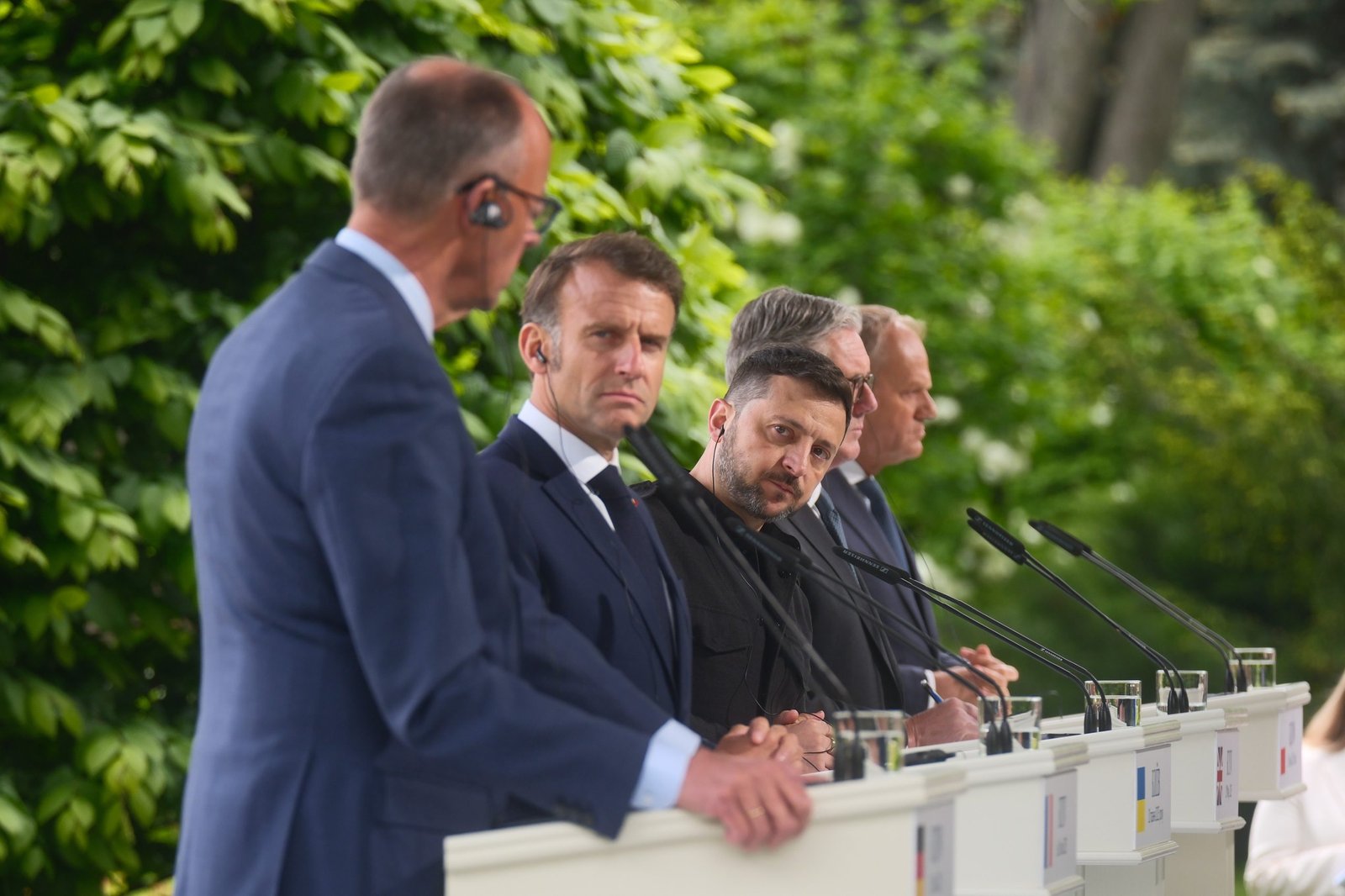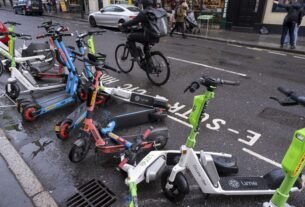The coalition of countries supporting Ukraine will hold a video call today with Ukrainian President Volodymyr Zelenskyy ahead of his critical meeting on Monday with US President Donald Trump in Washington.
The call – jointly coordinated by British Prime Minister Keir Starmer, French President Emmanuel Macron, and German Chancellor Friedrich Merz – will take place today at 15:00 CET, the Élysée said on Saturday.
During the Alaska meeting, Russian President Vladimir Putin made it clear that he wants the Europeans excluded from the talks. He specifically warned them not to “make attempts to disrupt this emerging progress through provocation or behind-the-scenes intrigues.”
However, Europeans are still expected to play a role in post-war Ukraine. Trump said in an interview with Fox News right after the summit that the European nations “have to get involved a little bit,” even if the onus was on Zelenskyy. According to the New York Times, he has apparently invited leading European politicians to the meeting with Zelenskyy in Washington.
First, though, they will need to address several pressing issues in their video call.
Hot topic I: Peace Deal without a ceasefire?
Donald Trump on Saturday dropped his push for a ceasefire in Ukraine in favor of pursuing a full peace accord – a major shift announced hours after the summit.
Prior to the high-stakes meeting in Alaska, securing an immediate cessation of hostilities had been a core demand of Trump and European leaders including Ukraine’s Volodymyr Zelenskyy.
The shift away from an urgent ceasefire would seem to favor Putin, who has long argued for negotiations on a final peace deal – a strategy that Ukraine and its European allies have criticised as a way to buy time and press home Russia’s battlefield advances.
Zelenskyy said on Saturday after a “substantive” conversation with Trump about the Alaska summit that he looked forward to his Washington visit and discussing “all of the details regarding ending the killing and the war.” He posted on X: “A real peace must be achieved, one that will be lasting, not just another pause between Russian invasions.”
However, he later emphasised that Russia’s refusal to accept a ceasefire was complicating efforts to end Moscow’s more than three-year-long conflict.
“We see that Russia rebuffs numerous calls for a ceasefire and has not yet determined when it will stop the killing. This complicates the situation,” he said.
“If they lack the will to carry out a simple order to stop the strikes, it may take a lot of effort to get Russia to have the will to implement far greater – peaceful coexistence with its neighbors for decades,” he added.
Hot topic II: Territory
According to The New York Times, Trump is expected to raise the issue of Russian-occupied Ukrainian territory on Monday. The topic was not mentioned during a press conference between Trump and his Russian counterpart, Vladimir Putin.
The Financial Times and AFP reported that Putin has demanded Ukraine withdraw from the partially occupied eastern provinces of Donetsk and Luhansk as a condition for ending Russia’s war. However, he told Trump that he could agree to freeze the remaining front lines if his basic demands are met.
German Chancellor Friedrich Merz, on the other hand, told German television station ARD that Trump had not made any concessions to Putin with regard to Ukrainian territory.
Russia currently occupies 20% of Ukraine’s territory – Crimea excluded – which was annexed by Russia in 2014.
Zelenskyy, who fears that Russia will escalate its attacks in the coming days, has refused to give up any of its land.
A statement by EU leaders suggested that it will be up to Ukraine to decide on matters concerning its territory, but emphasised that “international borders must not be changed by force.”
Hot topic III: Security guarantees
Meanwhile, Trump raised the idea of security guarantees inspired by NATO’s Article 5. Practically, this would mean that Ukraine would benefit from a collective security clause in case it is attacked, but it would not join the Transatlantic Alliance, thus satisfying Moscow’s demand.
France, the UK, and Germany have said they would send peacekeeping forces to guarantee peace in Ukraine, but not on the front line.
Klaus Welle, former Secretary General of the European Parliament from 2009 to 2022, said earlier this year that a peacekeeping model for Ukraine could be similar to that of West Germany during the Cold War.
“You know, the pressure from the Soviet Union coming from East Germany was very strong. And we were able to resist for 40 years because we had foreign troops. We had American troops, British troops, French troops, and by the way, we still have American troops in Germany,” he said.
“In Germany, on the front line we had German troops, but in the second line, a little further back, the Allied troops. So, I think we need that,” he added, noting that American logistical and air support would also be necessary.
(bms, sm, cs)





